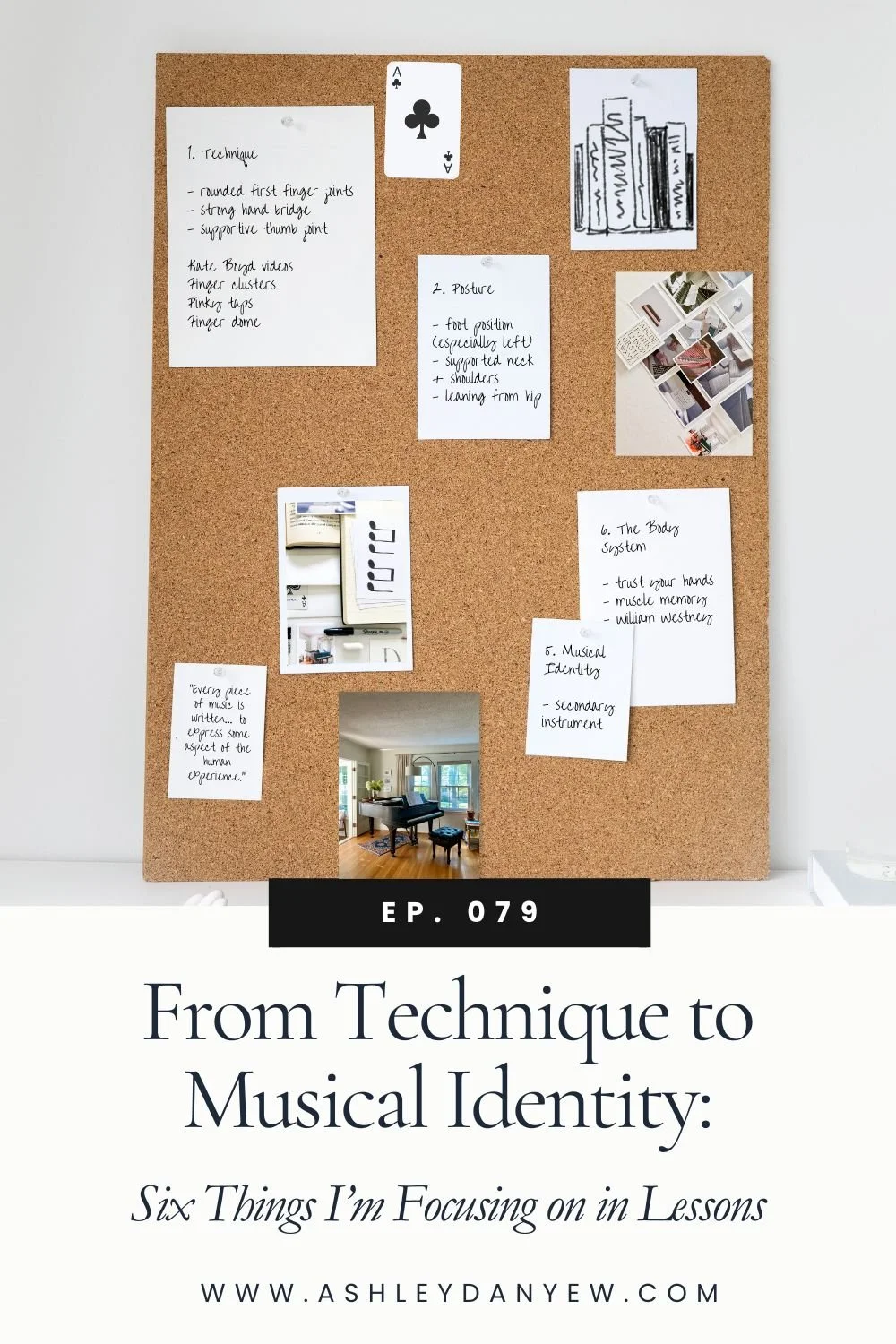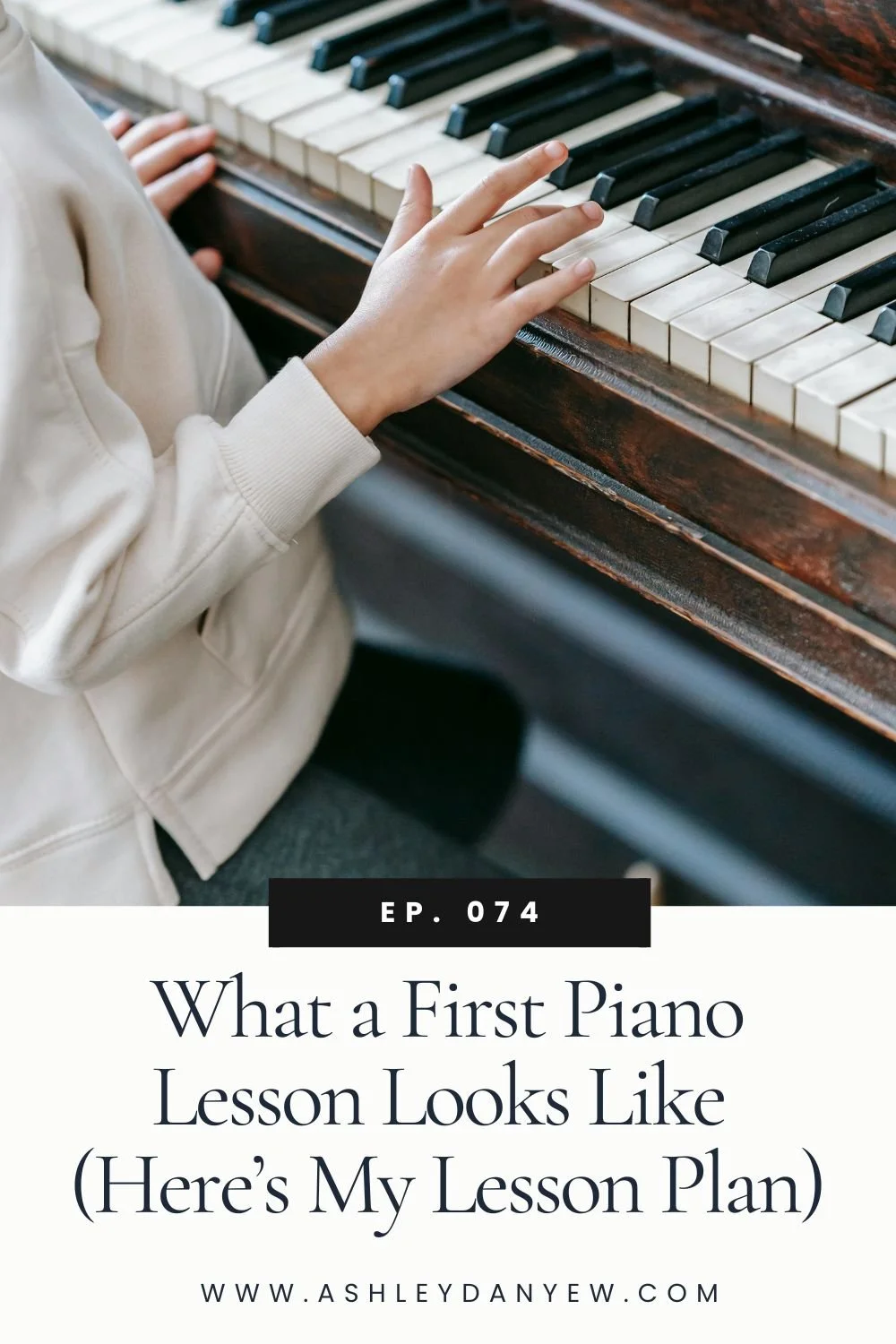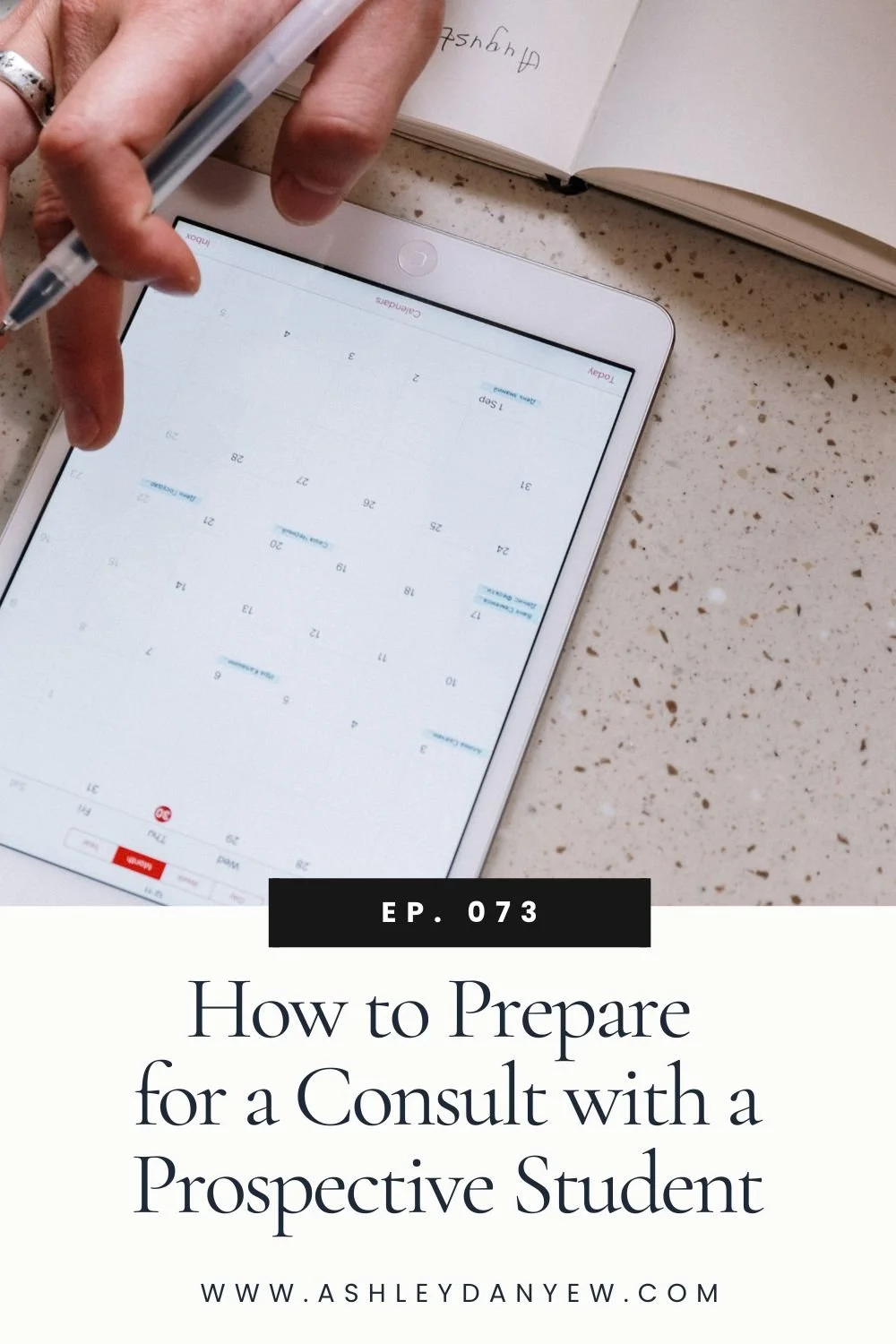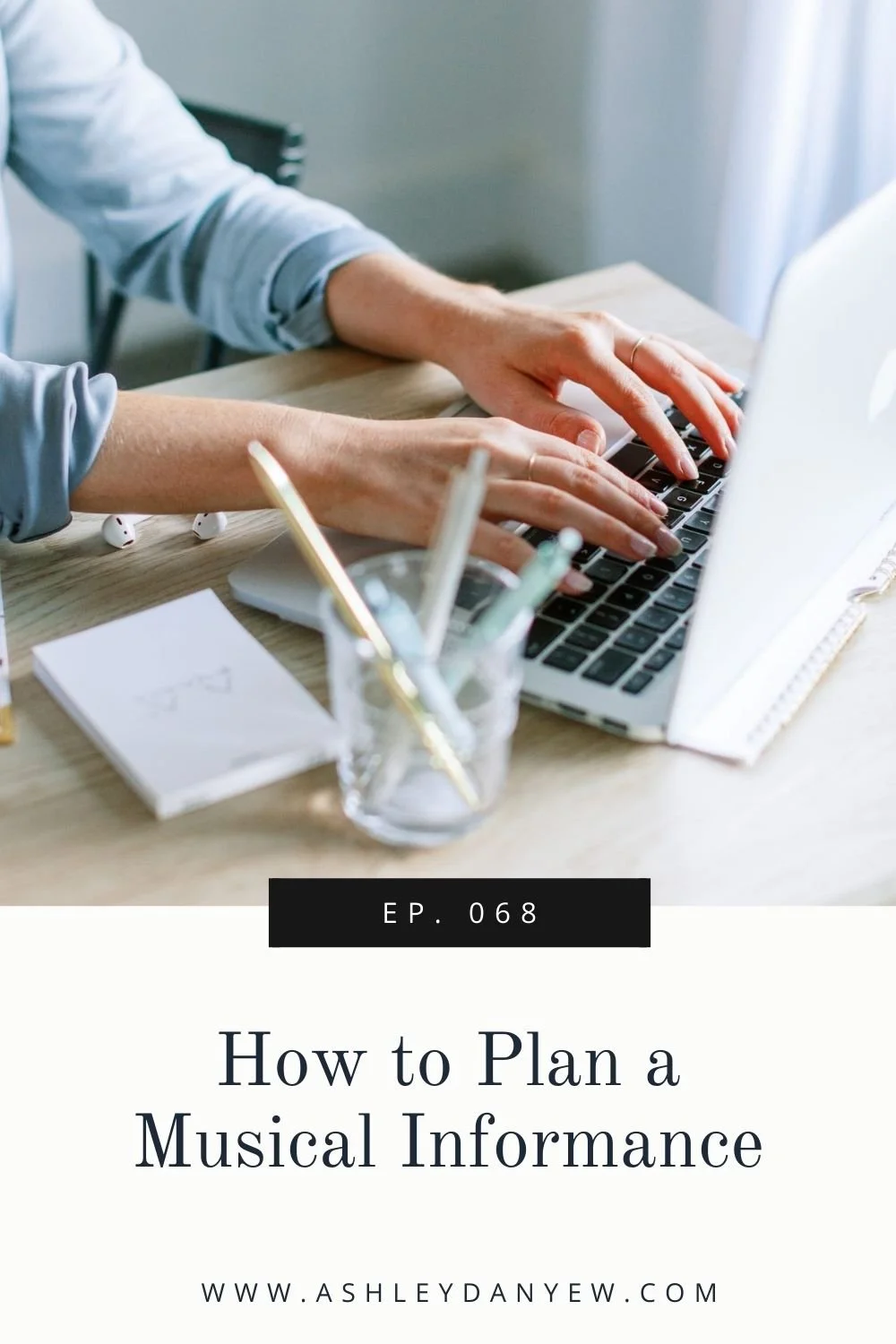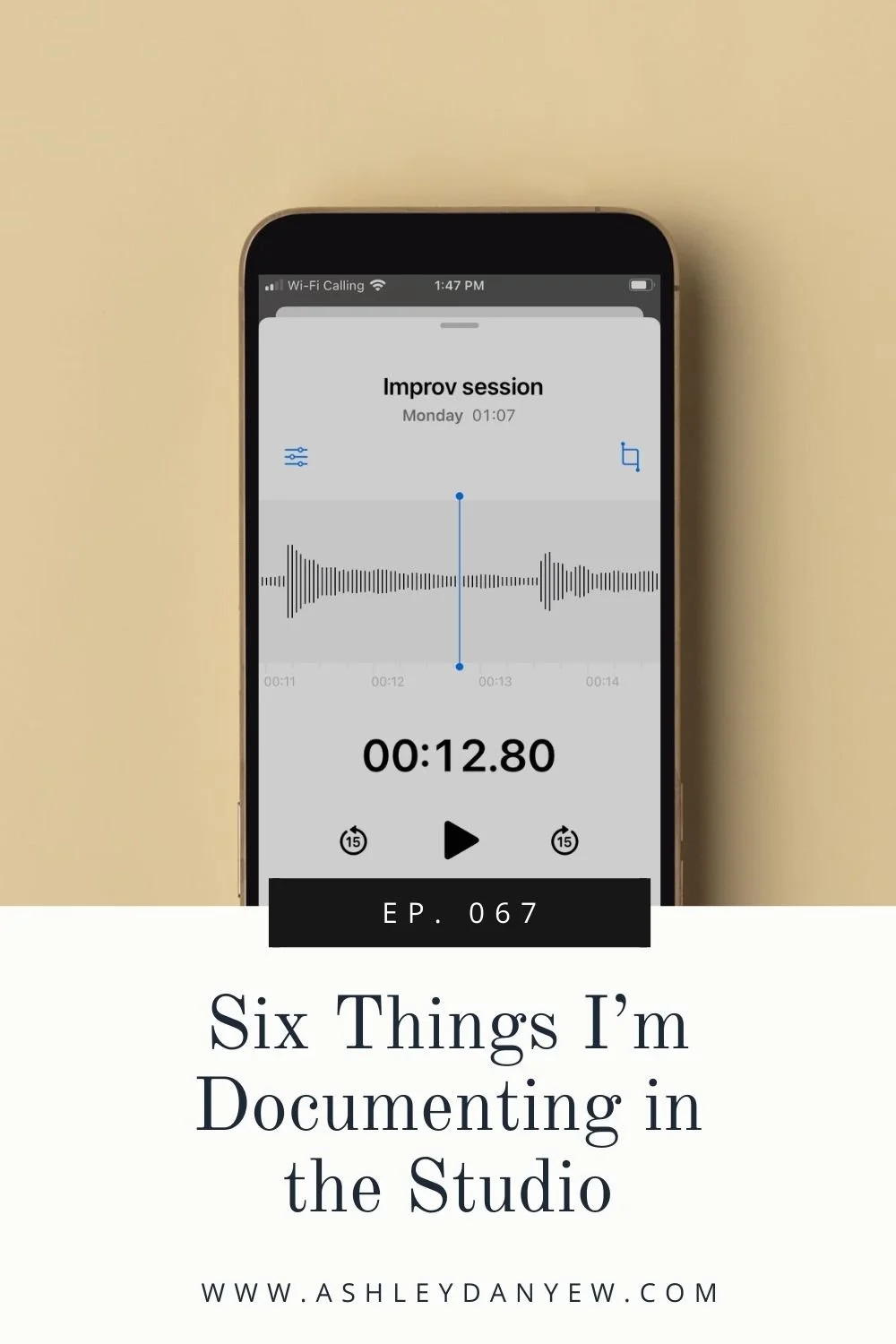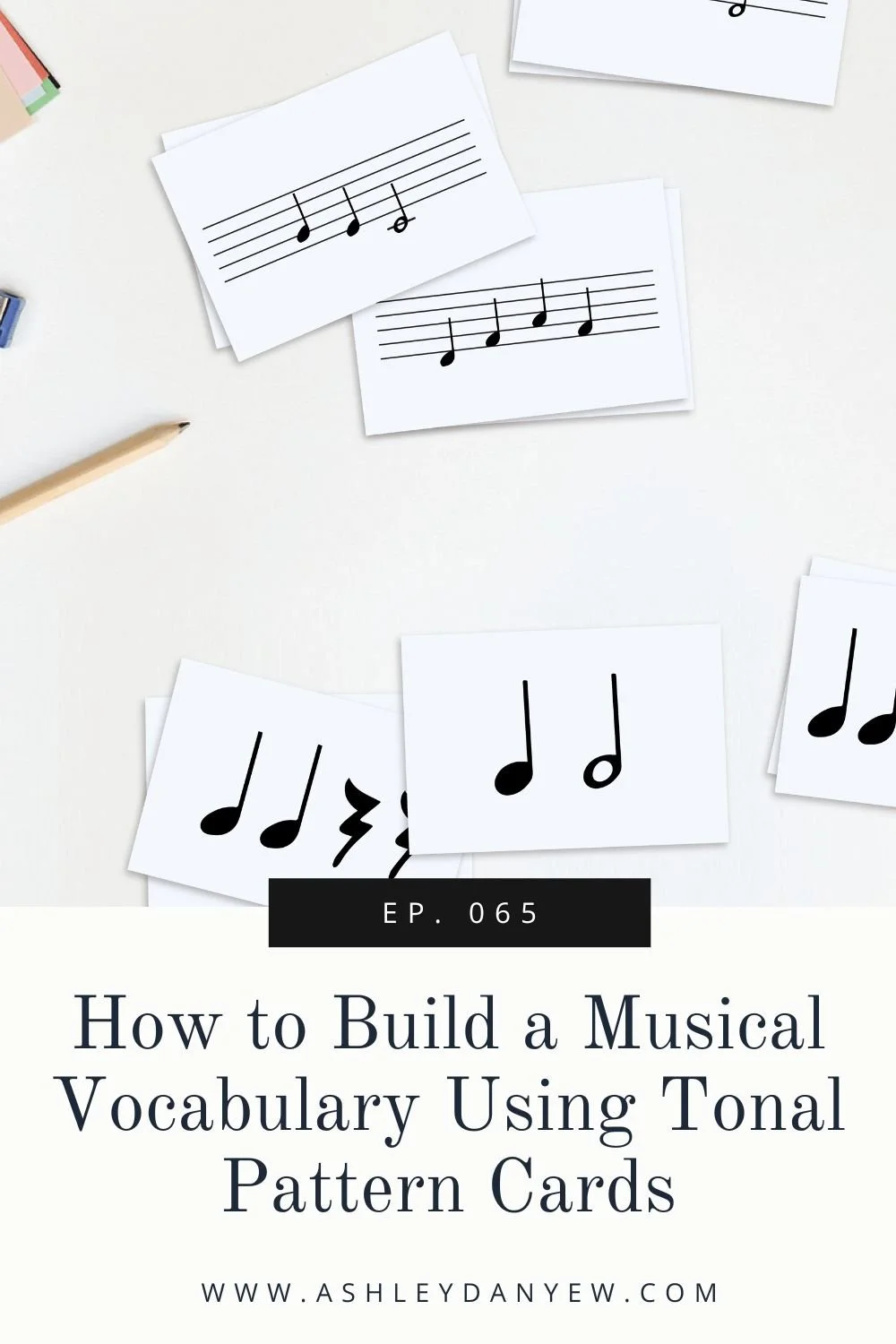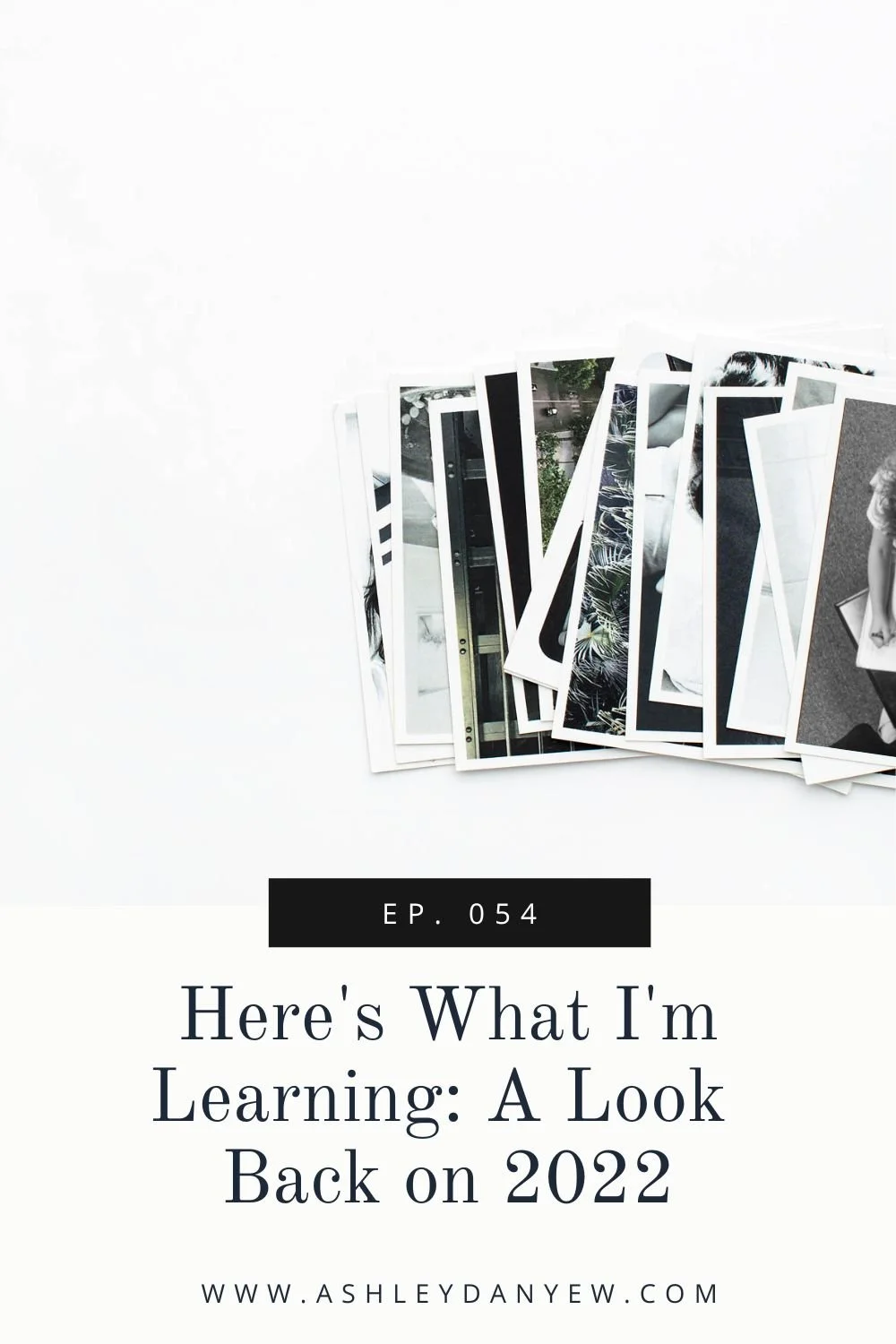The birds are chirping, the first Spring flowers are popping up in the front yard, and Rory, my dog, insists on laying in the middle of the daffodil bed whenever the sun is out.
These are my seasonal cues that it's time to start planning for our annual end-of-year studio recital. To give you a little context, I think I've mentioned before that I teach at a private school. It's nursery through 12th grade and I teach in the after-school program. Most of my students attend this school, so having our recital on-site is easy and convenient for everyone (and it gives us an opportunity to practice on the piano in the space during our lessons a few weeks ahead of time, which is helpful).
As the title of this episode suggests, I usually spend 3-4 months planning all the details of this event, helping my students prepare, and communicating with parents and families so they know what to expect.
Last year, I wrote down my recital-planning checklist month by month so I could share it with you here on the podcast. So if you're on a similar schedule and starting to plan your year-end recital, here's an inside look at my process:
Three Months Out
The first thing I do every year to kick off recital planning is to book the venue. Because I'm not employed by the school (I work independently), I need to email my contact and request the date and time I'd like to use the school theater.
Once I have confirmation that the event has been scheduled and is on the school calendar, I send a Save the Date email to parents and families. This usually goes out right after February Recess.
I keep this very short and simple. In fact, I reuse the same basic script from my collection of studio email templates, which I sell in the Musician & Co. shop.
Learn more about those and the 30 email scripts that are included >>
Here's what I send as a save-the-date announcement:
Hi everyone,
Save the date! Our spring piano recital will be on [day, date, and time] at [location]. Reception to follow. Friends and family are welcome! More details to come.
All the best,
Ashley
Finally, I create an initial recital program document (either a blank note in Notability, which I use for writing assignment sheets, a note in the Notes app, or a piece of notebook paper). This is a place to start jotting down my students' recital pieces, things they're playing for Solo Festival, or pieces I want to assign in the next few weeks.
Two Months Out
Two months before the recital, I finalize all repertoire selections with my students. I encourage my students to play two pieces each, though I often have at least 1-2 who ask if they can play three and 1-2 that may be playing longer or more advanced works and thus only performing one piece. Finalizing repertoire usually happens the week before or the week after April Recess.
I also update assignment sheets with a "recital" section near the top. This helps communicate to my students that recital pieces should be a practicing priority and it helps keep parents in the loop so they know what to ask about.
One final thing I do during this timeframe is schedule a piano tuning, if needed. If you're having a recital in a community venue—a church or school—work with the music director or teacher to coordinate a tuning for sometime before your recital, if possible. If you're hosting a recital in your home or on an instrument you own and maintain, contact your piano tuner now to set something up for closer to your recital date.
One Month Out
One month before the recital, I send a Recital Prep + Reminders email to all parents and families. Again, this is an email I have in my Customizable Email Templates for Studio Teachers in the Musician & Co. Template Shop. I include a reminder about the date and location, the titles of the pieces their child is playing, and 5-6 ways to support practicing at home in these final weeks.
We start practicing our "piano bow" in lessons the month before the recital - this is something I review every week after they finish their recital pieces, especially with younger students and those who haven't participated in a recital before. Invariably, there will be one student who forgets to bow, one who bows away from the audience, or one who bows while walking back to their seat, but it doesn't hurt to spend time in lessons practicing this!
If any students are playing together, I make sure to schedule duet rehearsals or overlap lessons to give them a chance to rehearse together for several weeks before the event. This builds security and confidence and gives them an opportunity to make musical decisions about who will cue the entrance or the lift at the end, who will be responsible for pedaling, balance issues, tempo changes, etc.
I'm also working on my recital program document at this point—adding in composer/arranger information and making notes to myself about which pieces will have teacher duets. If there's a teacher accompaniment, I always like to ask my students if they'd like to perform as a duet with me or if they'd prefer to play the piece as a solo. Sometimes, they choose to play one piece as a solo and one as a duet, for variety.
If possible, I like to start having lessons in the theater during these four weeks so students have an opportunity to rehearse in the space. Adjusting to a new instrument, a different pedal, a different bench, and a much larger space gives us an opportunity to talk about projection, dynamics, voicing, balance, articulation, etc.
Finally, I'm making notes in each lesson about each student's preferred performance order. I like to give my students an opportunity to choose which piece they'd like to play first and which one they want to finish with. I'm still making edits on my original recital program document at this point, so I'll simply make a note of #1 and #2 as students make those decisions so I have that information when I type up the official program.
One Week Out
The week before the recital, I send a quick Recital Reminder email with reminders about what time to arrive and what to wear.
I like to host a brief reception out on the lawn after the recital (weather permitting). I've done this a few different ways in the past—asking families to bring something, sending around a sign-up form in advance, asking a few people to bring specific things, and hosting it myself.
The last few years, I've hosted it myself—I consider it a gift back to my studio families—and here's what I've found works really well:
A homemade fruit salad with grapes, strawberries, blueberries, and pineapple
Popcorn and/or pretzels
Cheese cubes
Cookies or brownies
Lemonade and water
Since our recital is in the morning, the reception ends up being around 11:30 a.m., so this is perfect for a quick snack before lunch.
During this week, I'm typing up and printing the recital programs and rehearsing my welcome speech. This usually includes a few thank-yous (to everyone for coming, to the school for providing the space for lessons and for letting us host this recital, and to parents for their support and encouragement throughout the year). I also like to acknowledge graduating seniors and students who participated in Solo Festival.
Finally, if I do have any graduating seniors, I like to write a personal letter and have a small gift for them, so I'm often finishing that and purchasing and/or wrapping the gift during this week.
Day Of
On the day of the recital, I arrive 45 minutes early to set up the piano (and move it into place, if needed). While I'm turning on the lights, preparing the space, and meeting students for warm-ups on the piano, my husband, Steve sets up the reception table (we usually bring a tablecloth and a vase of flowers) and gets the food ready.
As families arrive, I distribute programs and help students find their seats (I have them sit in performance order).
Recital-Planning Summary
To summarize all that, three months before the recital, my list includes:
booking the venue
sending a Save the Date email
creating an initial recital program document where I can keep track of repertoire
Two months before the recital, I'm:
finalizing all repertoire selections
updating assignment sheets with a "recital" section
scheduling a piano tuning
One month before the recital, I'm:
sending the Recital Prep + Reminders email
practicing piano bows in lessons
rehearsing duets
adding composer/arranger information to the recital program document and asking students if they'd like to play with the teacher duet
rehearsing in the space
finalizing performance order
In the week leading up to the recital, my list includes:
sending the Recital Reminder email
planning reception food
typing and printing recital programs
rehearsing my welcome speech
writing senior letters + purchasing/wrapping gifts
On the day of the event, my list includes:
setting up the piano
setting up the reception table
meeting students for warm-ups
distributing programs to performers
Another Recital Resource
If you're looking for another recital-planning resource, my friend Amy Chaplin of Piano Pantry did an episode on this topic and has a free recital preparation timeline and checklist. It's always helpful to hear how other people organize things in their studios, so look for the link to that episode in the show notes.
Also, if you missed our conversation last year, look for the link to Ep. 065 on Amy's podcast where we talk about creative music teaching, lesson planning, tech tools, and books we're reading.
I hope this episode helps you feel more confident and prepared going into the end of the year and preparing for your studio recital. Feel free to reach out to me on Instagram with any questions—I'm happy to help!







